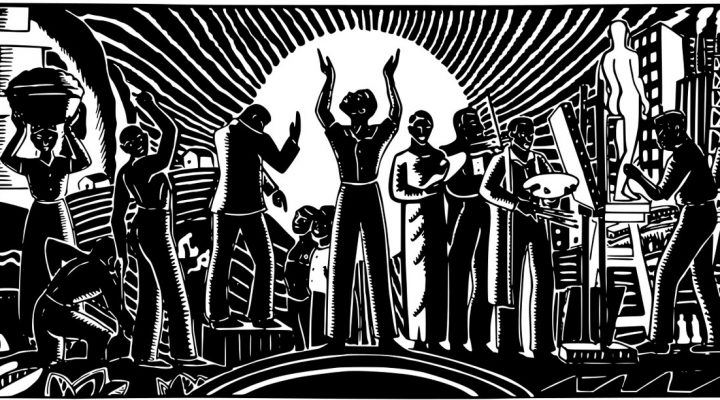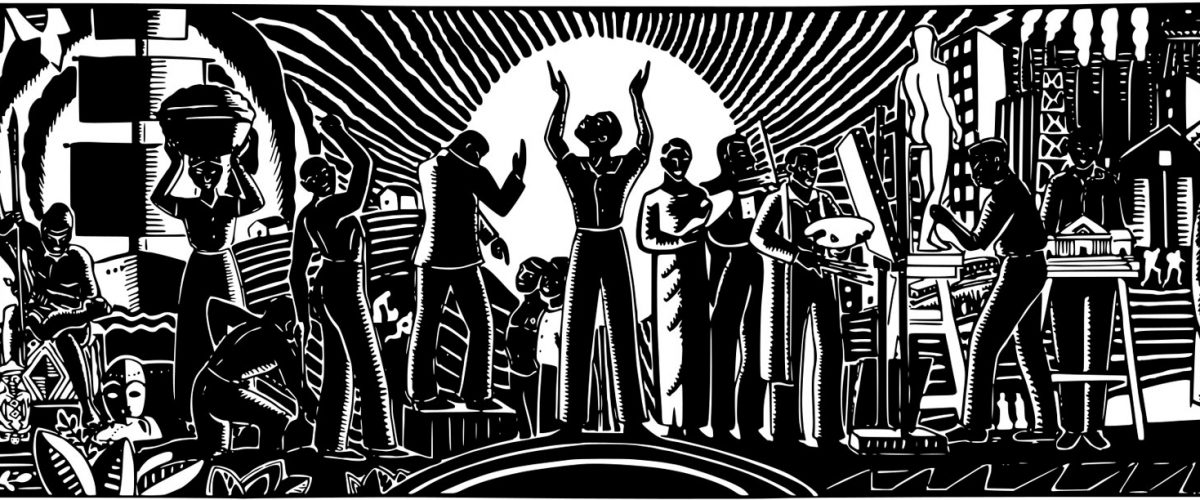Recently, the College Board announced there will be additional revisions to the framework of the AP African American Studies curriculum nationwide. These revisions are in response to a growing controversy surrounding the recently published course framework, which some scholars say was “not historically accurate” due to its de-emphasis on concepts such as reparations, Black Lives Matter and intersectionality, which are “foundational to the college-level discipline of African American studies.”
AP African American Studies is a new advanced placement course offered by the College Board, first piloted in 60 high schools across America during this past school year. In the upcoming school year, the pilot is expanding to “hundreds of additional high schools,” and this time, an AP Exam will be offered in the spring of 2024.
At the beginning of February this year, a revised course framework was published, from which much of the original course material had been deselected. According to some educators, significant changes were made between the original framework and the new one, including the exclusion of “contemporary subjects such as Black Lives Matter and Critical Race Theory.”
Revise us again
The College Board’s statement emphasizes the importance of African American history and culture and a desire to “listen to the diversity of the voices within the field.” The College Board plans to continue revising the course framework to address the concerns expressed by the public by having their committee of Scholars in African American Studies revisit the framework and decide what changes need to be made.
“Those scholars and experts have decided they will make changes to the latest course framework during this pilot phase. They will determine the details of those changes over the next few months,” the statement explains.
Their goal is to “deliver a representative introductory college-level course” that offers students “access to the full breadth and beauty of this discipline.” The statement does not include an expected date for a new framework but notes the details of new changes will be determined over the “next few months.”
Florida puts on the squeeze?
This controversy began on Jan, 12, prior to publication of this new framework, when the Florida Department of Education sent a letter to the College Board explaining they will not include the course in Florida high schools and charging that the AP African American Studies course content “significantly lacks educational value.”
The letter also claimed the course content violates Florida law. Florida has been at the forefront of enacting conservative-desired restrictions on what Gov. Ron DeSantis has called “woke” ideology in education.
The College Board said it did not receive this letter until Feb. 7 and published a public response on Feb. 8.
Speculation spread that the College Board stripped the curriculum of contemporary topics due to political pressure from Florida.
The claims expressed in the College Board’s response letter serve both as a response to the Florida Department of Education as well as an explanation to the public. After release of the new framework, speculation spread that the College Board stripped the curriculum of contemporary topics due to political pressure from Florida.
In its letter, the College Board explains that no member of the Florida Department of Education saw the new framework prior to its public release.
The letter specifies that the Florida Department of Education never communicated to the AP Program how the pilot course framework violates Florida law, despite requests on three occasions beginning in September 2022. The College Board also maintains all content in both the pilot and the new framework is historically accurate.
The College Board goes on to explain that the reason for changes between the original and new framework was “to reduce the number of topics to a scope and sequence appropriate for teaching and learning in a single academic year.”
With feedback from the pilot courses, the AP Program learned the original framework was too lengthy and therefore reduced the number of topics by 20%, the board said. Some of the topics cut from the framework are now included as optional project topics for students. No topics were removed because they “lacked educational value” as the Florida Department of Education claims.
The AP Program also emphasized that no Black scholars or authors were removed from the course and contemporary topics (such as Black Lives Matter) are never mandated in AP courses. Instead, contemporary topics are electives for students taking AP courses and can be used on the final exam to help analyze and present evidence while answering related questions.
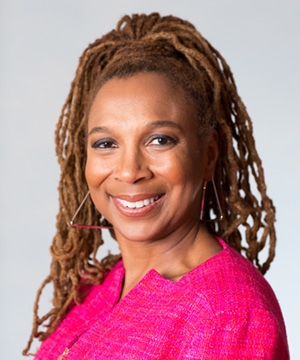
KImberle Crenshaw
Kimberlé W. Crenshaw, a law professor at Columbia who coined the term Critical Race Theory, is one of the writers whose work was expunged from the new framework. Other authors who are not found in the new framework include Roderick Ferguson and his work on queer social movements, Ta-Nehisi Coates and his work on reparations as well as bell hooks and her work on race, feminism and class.
Crenshaw told the New York Times that, although the College Board may not have made changes in response to political pressure, the appearance that they might have is not a good look. She says the course, which was meant to teach students ways to think about issues like police brutality, mass incarceration and continuing inequalities, now fails to do so. Instead, the social circumstances that created these issues in the first place have created “backlash against the content that people don’t like.”
Some conservatives also expressed concern over the changes made, such as Ilya Shapiro, who was disappointed with the omission of conservative or independent Black thinkers throughout the curriculum, such as Supreme Court Justice Clarence Thomas.
Critiquing Critical Race Theory
Other conservatives have consistently pushed against the AP African American Studies framework, as well as other educational topics that include content on race, arguing that Critical Race Theory “admonishes all white people for being oppressors while classifying all Black people as hopelessly oppressed victims.”
Opponents of the use of anything they label as Critical Race Theory in schools believe it is an attack on the American identity. Rather than being a lens through which Americans can critically consider the racially founded flaws in our systems, they view it as an “obstacle to the pursuit of an equitable democracy.”
Opponents argue, if taught in schools, Critical Race Theory will be harmful to white students’ self-esteem.
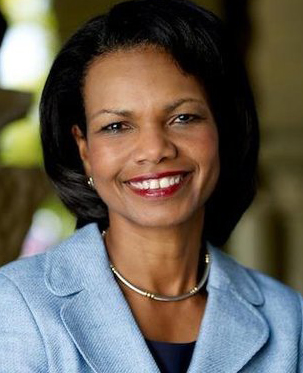
Condoleeza Rice
Condoleeza Rice, a Republican and former U.S. secretary of state, has said she “would like Black kids to be completely empowered to know that they are beautiful in their Blackness, but in order to do that I don’t have to make white kids feel bad for being white.”
In her opinion, the use of Critical Race Theory is not productive and just makes white people feel guilty and Black people feel disempowered.
This is a common theme among conservatives, who fear the use of Critical Race Theory will make students uncomfortable.
However, Laura Adderley, professor of Africana studies at Tulane, told the New York Times that, when talking about the history of race in America, conversations are “going to be upsetting to some people” since the factual history of the United States includes a broad scope of anti-Black violence such as slavery and lynching.
Many proponents of Critical Race Theory agree with her. The uncomfortable history of race in the United States is not easy to discuss in classrooms, although curriculums that address these facts do not aim to blame white students or shame Black students. They aim to educate.
What is Critical Race Theory?
So, it seems arguments over AP African American Studies and similar courses are founded on polarized perspectives on what Critical Race Theory is supposed to accomplish in education. And, there are polarized disagreements on what it even is.
According to the American Bar Association, Critical Race Theory is a framework that was created by legal scholars including Kimberlé Crenshaw. It was developed in the 1970s and ’80s after the Civil Rights movement as a response to the institutional racism these scholars noticed in various institutions.
There are four key tenets of Critical Race Theory.
Critical Race Theory defines racism in terms of society, not individuals, as “the unintended (but often foreseeable) consequences of choices.” This definition describes how race and racism can both “implicitly and explicitly impact social structures, practices and discourses.”
There are four key tenets of Critical Race Theory:
- Race is a social construct. There are no biological differences between people of different races, which the Human Genome Project scientifically proved in 2003. Instead, what we refer to as race is a “product of social thought” used to categorize humans based on physical features, such as skin color.
- Racism is “embedded within systems and institutions, like the legal system,” making racism both structural and systematic. This means racism — since race is a social construct — is present within all social institutions.
- Because racism has been interwoven into social structures like laws and public policy, it cannot be confined to specific people who do and say racist things. Instead, it is the “systematic nature of racism that bears primary responsibility for reproducing racial inequality.”
- Finally, Critical Race Theory recognizes the life stories of people of color throughout history are important to scholarship and a good education, therefore, should include the writings and works of these people.
Although these are the key points of Critical Race Theory, it is a very complex framework, as it was crafted for use in the legal system to change existing deficits within American institutions that make it difficult for lawyers to seek justice for all.
When applied to educational environments, Critical Race Theory aims to educate students on these four principles with the goal of teaching them how to deeply consider the perspectives and experiences of people of color as they have navigated institutional prejudices. Consequently, it asks students to consider how the socially constructed racial categories our society has created, and the subsequent racism this creates, impact the outcome of different situations.
For example, students learning about Critical Race Theory may use its framework to consider the Loving v. Virginia court case, which reframed a portion of the law to make interracial marriage legal.
The notion that people with different skin tones should be grouped into different categories, such as white and Black, and therefore not intermarry is a socially constructed perception, according to Critical Race Theory.
This is just one example of how the framework can be used to understand historical events, although it also can be used to analyze how contemporary issues are functioning within society, such as the Black Lives Matter movement.
However, the term “Critical Race Theory” does not appear anywhere in the new AP African American Studies framework. This is a source of contention on both sides of the political spectrum.
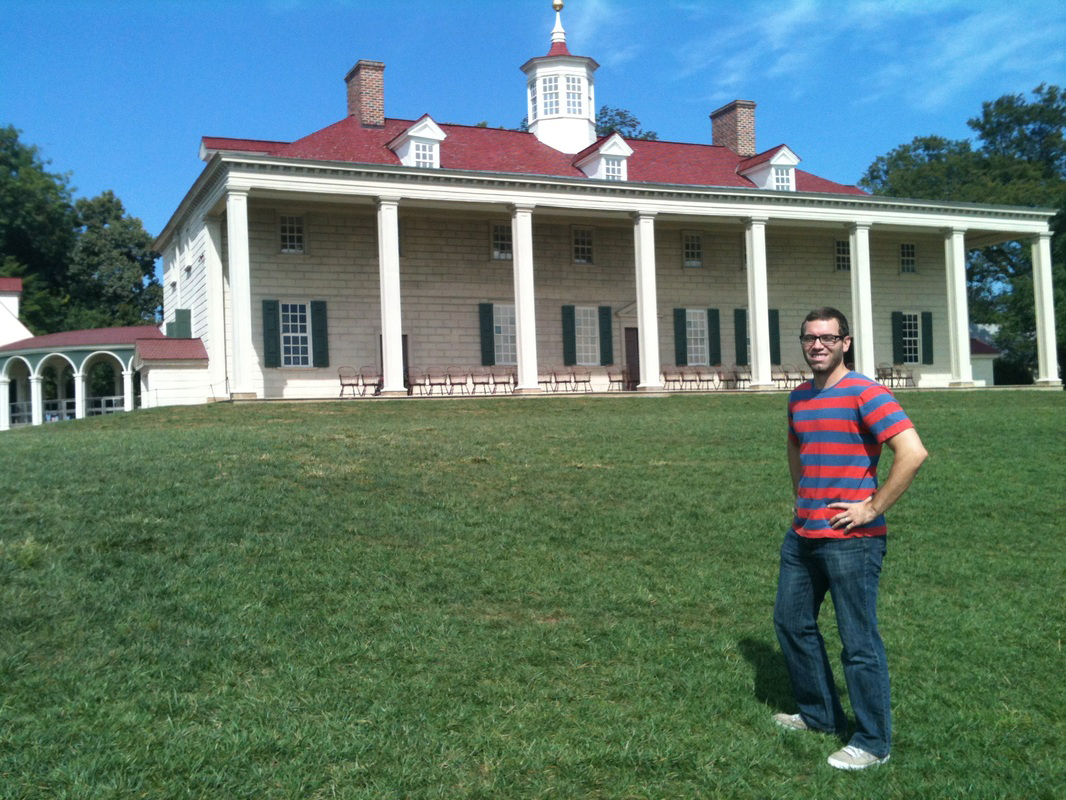
Bob Johnsen at Mount Vernon, home of George Washington
In the classroom
What do teachers think about this controversy?
BNG reached out to three teachers with some experience pertaining to the African American Studies course, but none of them felt comfortable being interviewed due to the controversial nature of public discourse surrounding the course. However, one history teacher who has not taught the course was willing to talk with BNG.
Jesse C. Carson High School in North Carolina was not one of the 60 pilot schools, but history teacher Bob Johnsen believes classes like AP African American Studies are important for high school students. At his school, Johnsen teaches an array of history courses, including Civics and Economics, World History and Cold War History.
“You cannot understand the story of American history or American culture without a grasp of the role and experience of African Americans.”
“All students, regardless of race, would benefit from learning more about African American studies,” he said. “You cannot understand the story of American history or American culture without a grasp of the role and experience of African Americans. If the goal of education is to prepare students for life and to make them better people, African American studies are essential.”
In North Carolina, some required courses are “crammed full” of important material, and teachers must decide what can and cannot be taught in just one school year. “All too often,” he said, “content regarding the African American experience is what ends up receiving significantly less treatment.”
This is due to several reasons, he said, including white educators feeling unqualified to teach about Black history or fearing that teaching about race will leave them “vulnerable to attacks from their communities.”
“An entire course dedicated to these studies can help address some of these deficiencies,” Johnsen said. “We must talk about race.”
He believes it is important that students are having academic conversations about race, calling racism a “defining sin of our nation from its very inception” that Americans ignore “at our own peril.”
“How could students possibly understand the history of our nation, or any other for that matter, without discussion of race? The tragedies we have endured from ‘All men are created equal’ to Antietam to Aunt Jemimah make very little sense without honest, academic discussion of the role of race in these episodes,” he said. “If history is to teach us how to navigate our current and future world, we learn all the wrong lessons if we don’t properly situate race within that history.”
Learning about race has both academic and spiritual benefits for students preparing to enter a world in which they are called to love their neighbor, he added. “Students need an academic foundation to help them understand what race is not — biological — and what it is — a social construction. This knowledge should help them better evaluate the historical use of race as an exclusionary marker, but also it should lead to them being better equipped to love their neighbor today and tomorrow.”
Moving forward
What does this controversy mean for education moving forward?
There are many teachers out there like Bob Johnsen who, although they may not identify Critical Race Theory as the inspiration for teaching, make a concerted effort to discuss race with their students. For these teachers, it is not about politics, making students feel a certain way or proving a point. It is about honoring the reality of the world in which their students live, where race plays a hefty role. It is about teaching them to be aware of the systems and structures in place surrounding them and responsive to the injustices these institutions may be intentionally or unintentionally facilitating.
At the least, teaching courses like AP African American Studies is about teaching the factual histories, cultural traditions and societal norms or issues related to the African American experience.
For some African American students, this may be the first opportunity to learn about these things with critical, peer-reviewed and reputable academic sources that affirm their identity as African American students. This also may be the first opportunity for white students to learn about history and injustice from the perspectives of figures who do not look like them.
Johnsen, like many other high school teachers, believes challenging students to think critically about history from various perspectives can do a great deal in preparing them for real life and making them better people.

Mallory Challis
Mallory Challis is a recent graduate of Wingate University who will begin studies at Wake Forest University School of Divinity this fall. This summer, she serves as an intern at Providence Baptist Church in Charlotte, N.C. She is a former BNG Clemons Fellow.
Related articles:
Americans must ‘change the narrative’ on public schools, panelists urge
“What’s the one book I should read on anti-racism?’ | Opinion by Susan Shaw

